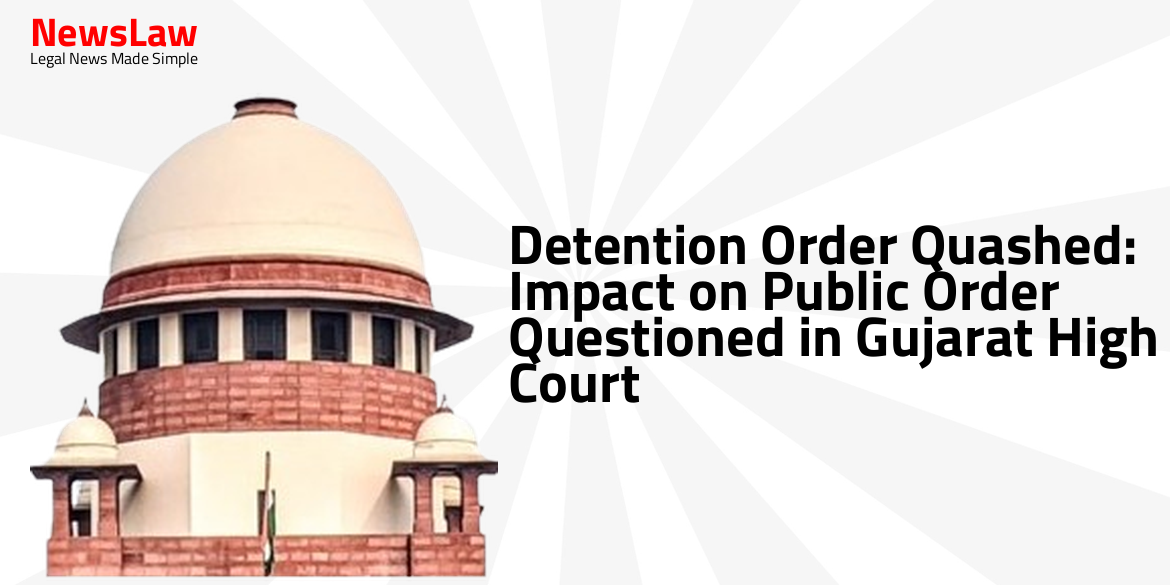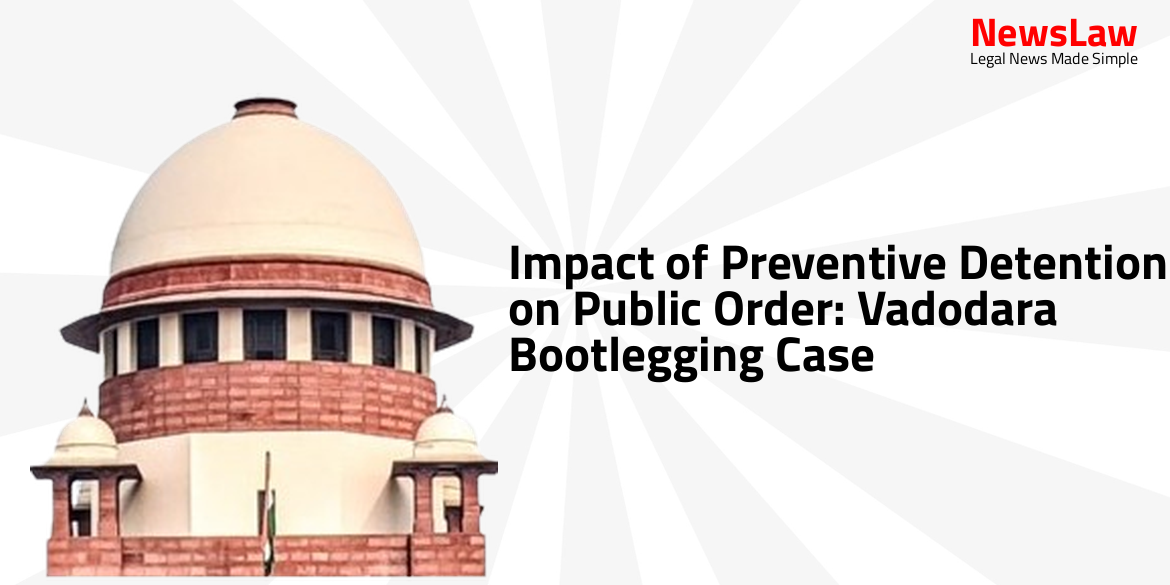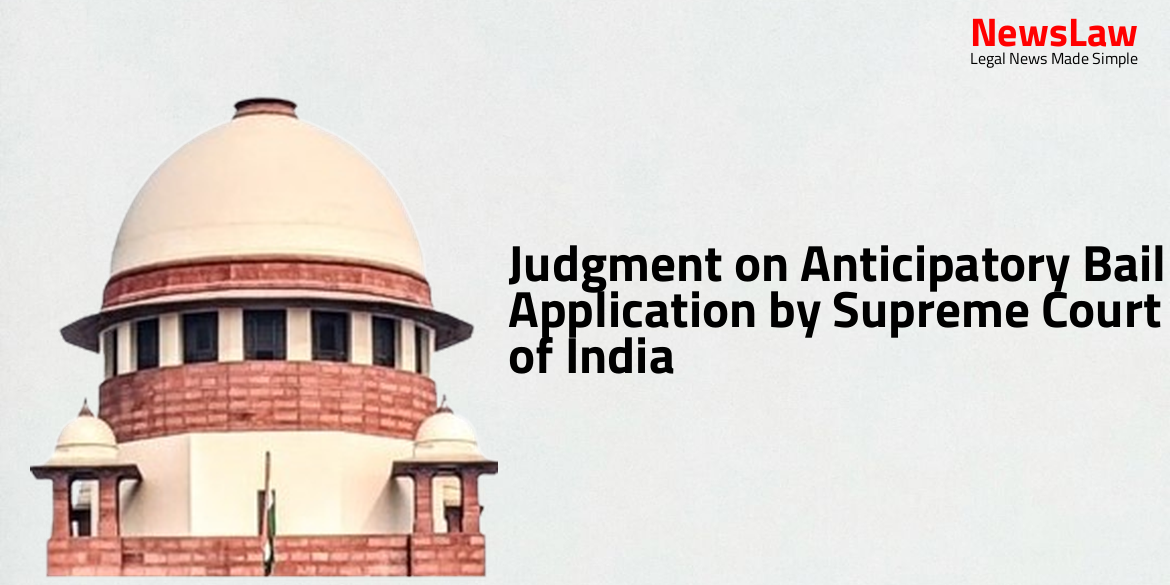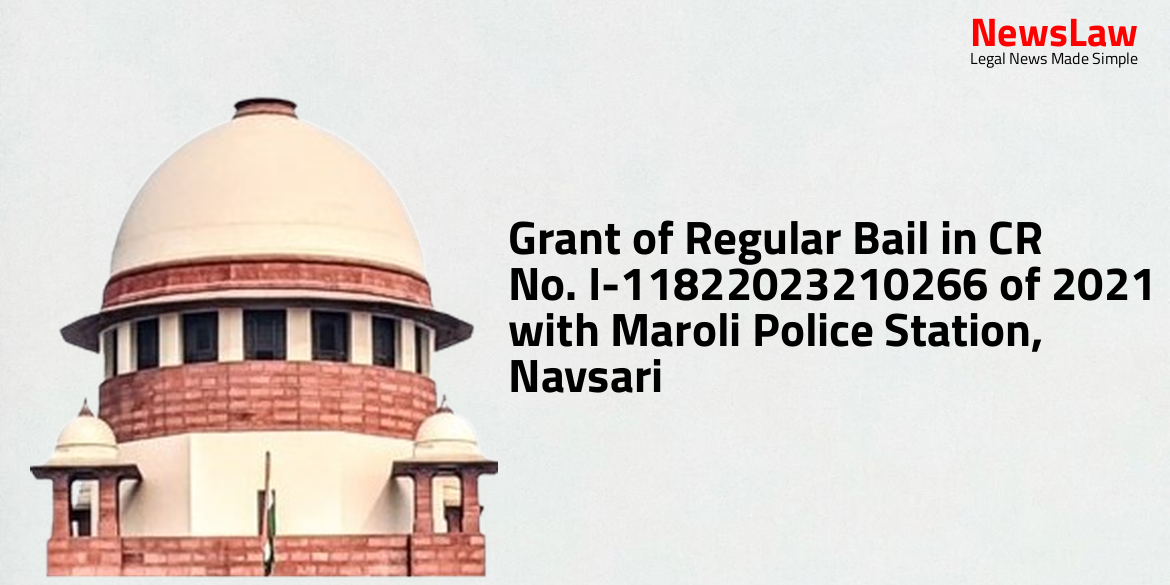The recent judgment by the Gujarat High Court scrutinizes a detention order that raises concerns about its effect on public order. The court’s decision delves into the pivotal issue of whether the detainee’s activities had any substantial impact on public order. Stay informed about the details of this case!
Issue
- The issue in question is whether the order of detention passed by the Detaining Authority under the Act of 1985 is legally valid.
- The key consideration is whether the order is sustainable in law based on the facts and submissions presented by both parties.
- Another aspect to be determined is whether this case involves a substantial question of law related to the interpretation of the Constitution of India or any relevant order.
- The examination of the legality and sustainability of the detention order is crucial for the resolution of this case.
Arguments
- Petitioner argues that the grounds of detention do not relate to public order, but rather to law and order.
- It is contended that the offenses alleged do not impact public order and only pertain to law and order.
- The activities of the detenue are seen as prejudicial to law and order, not to public order.
- State Counsel argued that the detenue is a habitual offender
- Activities of the detenue have negatively impacted society
- Detaining Authority passed the order to prevent the detenue from acting in a manner prejudicial to public order in Ahmedabad
Analysis
- Petitioner is in jail presently for alleged offences but those offences did not affect the community’s even tempo.
- Being a bootlegger does not warrant preventive detention unless activities affect public order maintenance.
- The authority wrongly concluded detenue’s activities were prejudicial to public order based on two criminal cases.
- The criminal cases mentioned in the grounds of detention do not impact public order maintenance.
- In the case of Pushkar Mukherjee v. State of West Bengal, the distinction between ‘law and order’ and ‘public order’ was explained.
- The expression ‘public order’ does not cover every infraction of order, it must affect the community or the public at large.
- Serious forms of disorder directly affecting the community fall under public order, while minor breaches of peace primarily affecting individuals do not.
- A mere disturbance of law and order is insufficient for action under the Preventive Detention Act; it must be a disturbance affecting public order.
- The detaining authority failed to prove that the petitioner’s alleged anti-social activities impact or are likely to impact the maintenance of public order.
- The decision in Piyush Kantilal Mehta Vs. Commissioner of Police, Ahmedabad, emphasized that mere disturbance of law and order is not enough for preventive detention.
- Material on record not sufficient to prove alleged activities of detenue affect public order
- Subjective satisfaction of detaining authority not legal or valid
- Offences alleged do not create feeling of insecurity or terror among the public
- Order of detention cannot be upheld
Decision
- The petition is allowed
- Direct service is permitted
- The order dated 21.12.2023 passed by the respondent authority is quashed
- Detenue to be set at liberty immediately, if not required in any other case
Case Title: AJAY AMARBHAI PATNI THROUGH HIS FATHER AMARBHAI MANGABHAI PATNI Vs. STATE OF GUJARAT
Case Number: R/SCA/114/2024



